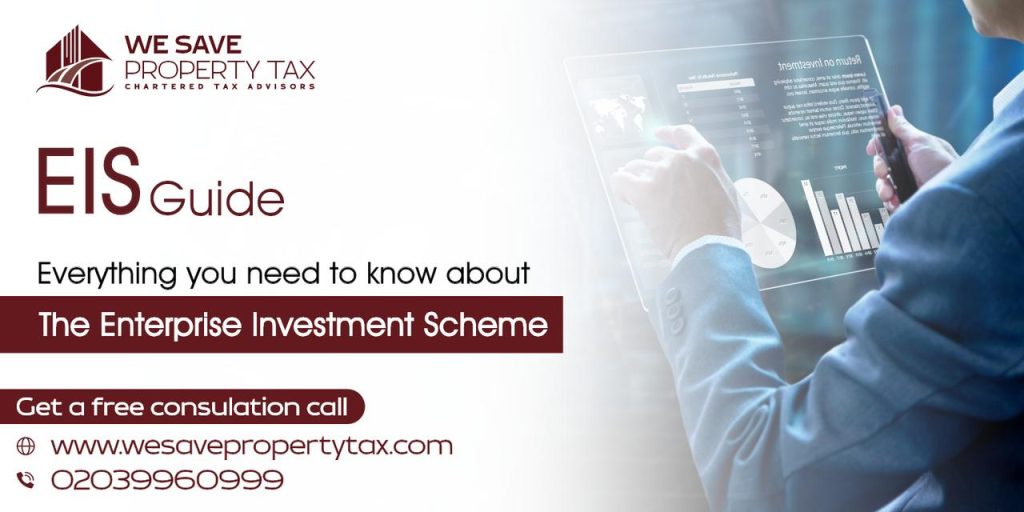Enterprise Investment Scheme
A tax relief program supported by the government that promotes investment in a start-up, high-risk companies is called the Enterprise Investment Scheme (EIS). Since its inception in 1994, the program has undergone revisions and updates to increase its efficacy. It provides several tax advantages and incentives, making it a well-liked choice for people wishing to invest in startups and small enterprises.
Those who invest in eligible enterprises and are UK taxpayers are eligible for the EIS. They are often small, unquoted businesses with fewer than 250 employees younger than 7 years old. The program is made to assist these companies in gaining access to finance that may not otherwise be possible, enabling them to expand and provide employment.
The Enterprise Investment Plan will be thoroughly explained in this article, along with its advantages, prerequisites for eligibility, and potential concerns.
Eligibility Requirements Enterprise Investment Scheme

To be eligible for a given program, service, or opportunity, an individual or organization must meet certain standards, which are called eligibility requirements. Eligibility requirements in businesses and investing frequently involve standards for the company looking for investment and the investors themselves.
Criteria for Eligible Companies
The requirements for eligible companies change depending on the particular investment opportunity or program. For instance, the qualifying rules for a venture capital firm could differ from those of a crowdfunding platform. Nonetheless, the following are some typical standards for qualified businesses:
Industry or Sector:
The company may need to operate within a certain industry or sector, such as technology or healthcare.
Stage of Development:
The business may need to be in an early or growth stage. Revenue or Financial Metrics: The business could have to achieve specific financial or revenue targets, including annual revenue or profitability.
Legal structure:
The business can require a certain legal form, like a corporation or limited liability company.
Location:
The business might need to have a specific level of presence or be headquartered in a specific area.
Criteria for Investors
The requirements for investors in an enterprise investment scheme can change depending on the investment opportunity or program. For instance, accredited investors might be required to meet different requirements than non-accredited investors. Nonetheless, the following may be some typical qualifications for investors:
Net Worth:
The investor might be required to have a minimum net worth of $1 million. Income: The investor might be required to have a minimum annual income of $200,000 or more.
Investment Experience:
The investor might need investment expertise or knowledge to take advantage of the opportunity.
Legal Status:
A certain legal standing, such as that of an individual or institutional investor, may be required of the investor.
Geographic location:
For the investor to take advantage of the opportunity, they might need to reside in a specific area. When pursuing any investment or business opportunity, it’s critical to research the exact requirements carefully, as eligibility requirements and qualifying criteria might vary significantly based on the investment opportunity or program.
What are the steps to invest in EIS?

The UK government supports the Enterprise Investment Scheme (EIS), which promotes investment in startup and expanding companies. Various tax advantages, such as income tax relief, capital gains tax relief, and loss relief, may be available to investors participating in EIS. To invest in EIS, follow these steps:
Finding EIS Opportunities:
Find EIS-eligible businesses that are raising money if you want to invest in EIS. Finding EIS opportunities can be done in many methods, including:
EIS Investment Platforms:
You can browse and invest in businesses that meet the EIS requirements on several online investing sites.
Enterprise Investment Scheme fund Managers:
EIS fund managers can provide access to a portfolio of enterprise investment scheme-qualifying companies. Professional Networks: Also, you can discover New chances by going to industry events or using your professional network.
Conduct due Diligence:
Per careful due diligence before investing in any EIS possibility is crucial. Reviewing the company’s finances, management, and business plan may be necessary.
Complete the Investment Process:
You can start the investment process once you’ve located an EIS opportunity you’re interested in and finished your due diligence. Usually, this entails signing an investment contract and sending money to the business.
Claim Tax Relief:
Fill up the necessary tax documents and submit them to HMRC for a tax reduction on your enterprise investment scheme investment. Your unique situation and the particular EIS investment will determine the available tax reduction. It is crucial to remember that investing in EIS entails risks, including the possibility of losing all or part of your money. As a result, it’s crucial to analyse your investment options thoroughly and, if necessary, seek professional guidance.
Risks Involved

The Enterprise Investment Scheme (EIS) offers investors several tax advantages and the chance to support small and expanding enterprises. However, investing in EIS carries risks like any other type of investment. The following are some hazards connected with EIS investments and strategies to reduce them:
Illiquidity Risk:
Most EIS investments are made in small, unlisted businesses, which may be more difficult to sell or find a buyer. This can make the investment illiquid, making it difficult for investor to sell their shares when they want to.
Mitigation:
By reducing their exposure to any company, investors can decrease illiquidity risk by investing in a diverse portfolio of EIS assets. Consumers may also consider investing in enterprise investment scheme funds, which may offer more liquidity and simpler exit options, in a portfolio of EIS-eligible businesses.
Business Risk:
Small and emerging enterprises might not have a track record or a well-established client base, making investments in them riskier. This could cause the company to perform poorly or shut down entirely, meaning a loss of investment.
Mitigation:
Investors can reduce business risk by performing extensive due diligence before investing in a firm. The company’s finances, business plan, and management team should all be properly examined. They want to consider investing in businesses with a track record or are supported by seasoned and prosperous investors.
Tax Risk:
Enterprise Investment Scheme investments offer various tax advantages, but these advantages are subject to requirements and authorities may revoke them if the stipulated criteria are not fulfilled.
Mitigation:
By ensuring they satisfy all the requirements for obtaining tax relief, investors can reduce their exposure to tax risk. To fulfill all criteria, they must also obtain expert tax guidance.
Exit Strategy
Exit strategy outlines a shareholder’s plans for leaving a company or investment vehicle. An exit strategy is crucial to every investment plan since it enables investors to realize rewards and lower risks.
Options for Exiting EIS Investments
There are several options for exiting EIS (Enterprise Investment Scheme) investments. The following are among the most typical choices:
Sale of Shares:
Depending on the company’s performance, investors may be able to sell their shares to another investor or a third party, typically at a profit.
Redemption of Shares:
In certain circumstances, the business may offer to repurchase shares from investors at a certain price or market value.
IPO:
For businesses wishing to go public, an IPO is possible. When the company goes public, investors in this situation can sell their shares on the open market.
Tax Implications of Exiting EIS Investments
Considering tax repercussions, selling EIS investments can positively and negatively affect a taxpayer’s tax obligation. Positively, investors may be eligible for tax breaks the government provides for enterprise investment schemes, including exemptions from income, capital gains, and inheritance taxes. On the downside, when a shareholder sells their shares for a profit, they must pay capital gains tax on the amount of the gain they made.
Moreover, if an investor sells their EIS investment three years after the original investment, they risk losing all or part of the tax benefits they initially obtained. It’s crucial to thoroughly analyze the tax repercussions of selling an EIS investment and get advice from a specialist.
Conclusion
The government supports a program known as the Enterprise Investment Scheme (EIS) which promotes investment in startup and expanding companies. EIS provides investors with various tax advantages, such as income tax relief, capital gains tax relief, and loss relief.
Investors can identify chances to invest in EIS through various channels, such as professional networks, internet investing platforms, and EIS fund managers. Investing in EIS has risks.
Therefore it’s crucial to perform extensive due diligence before investing and, if necessary, seek professional guidance. EIS can, in general, be a worthwhile investment alternative for those seeking to help small firms while gaining tax advantages.









